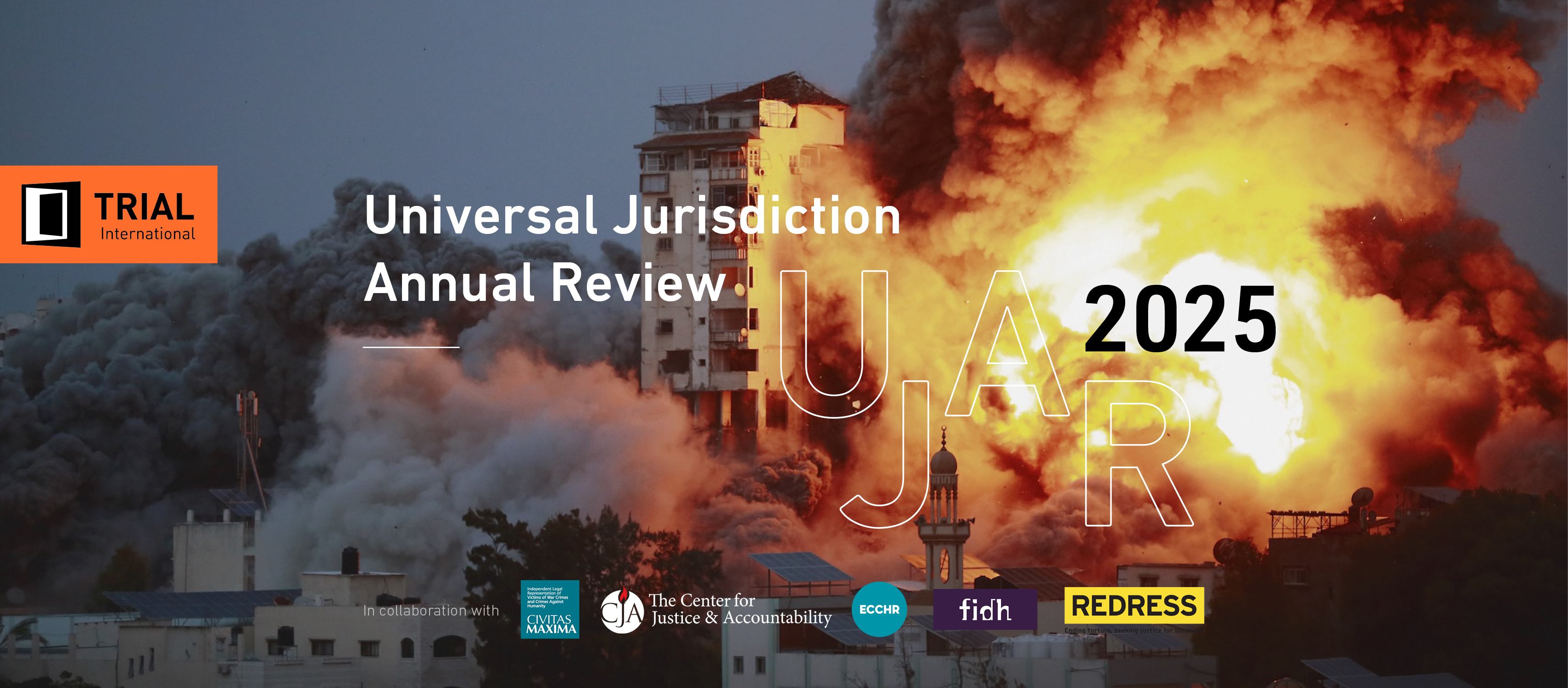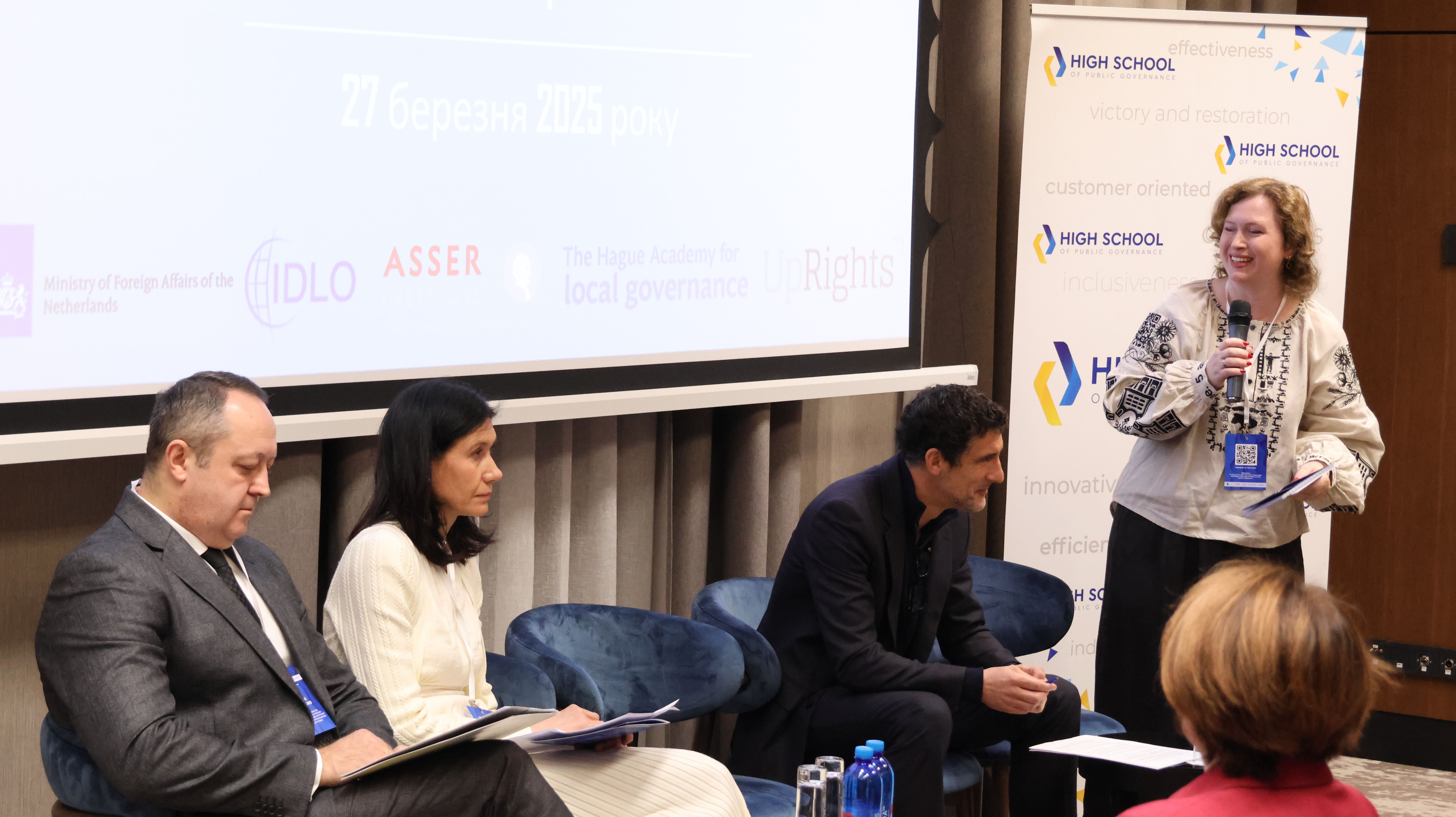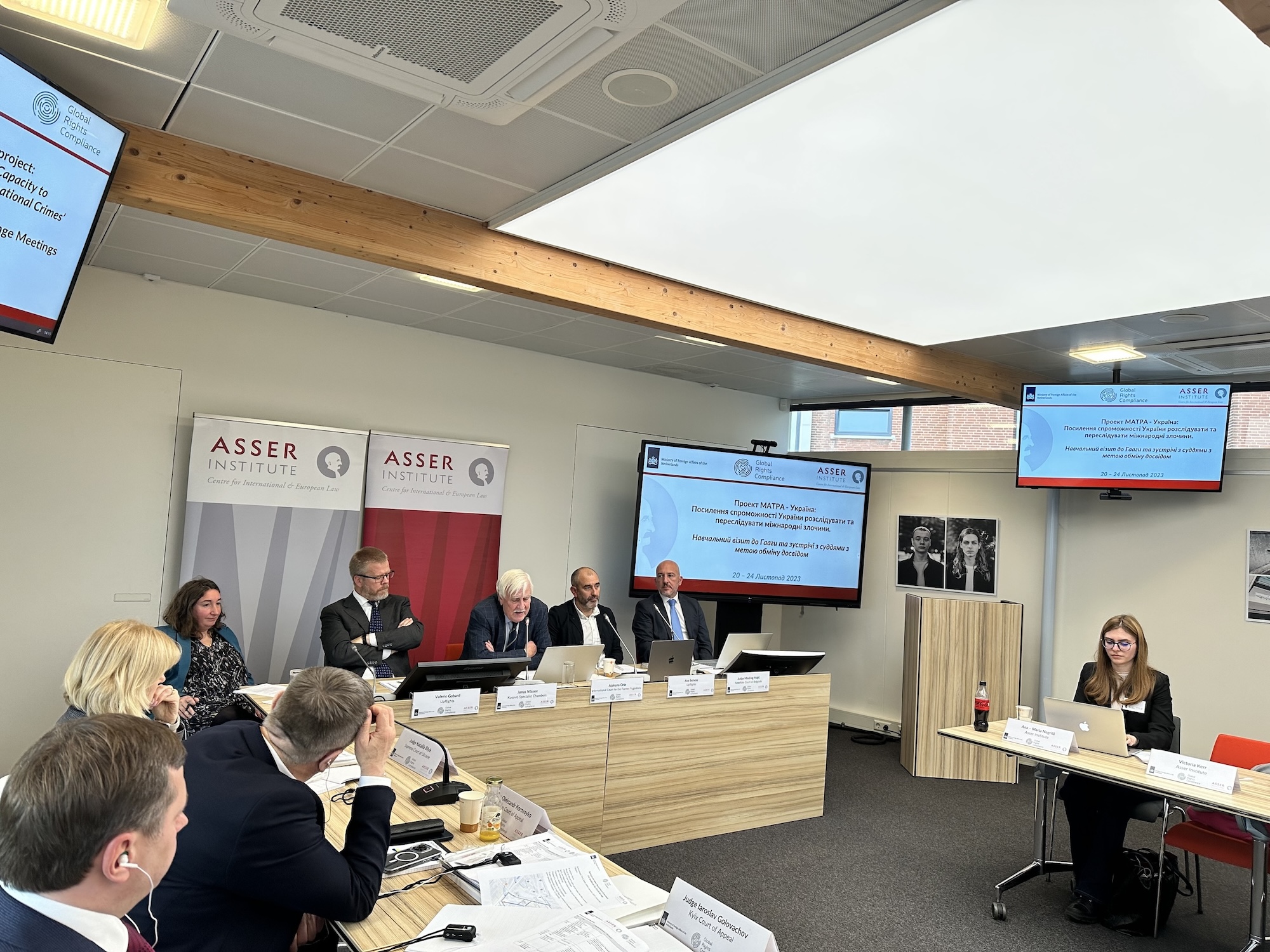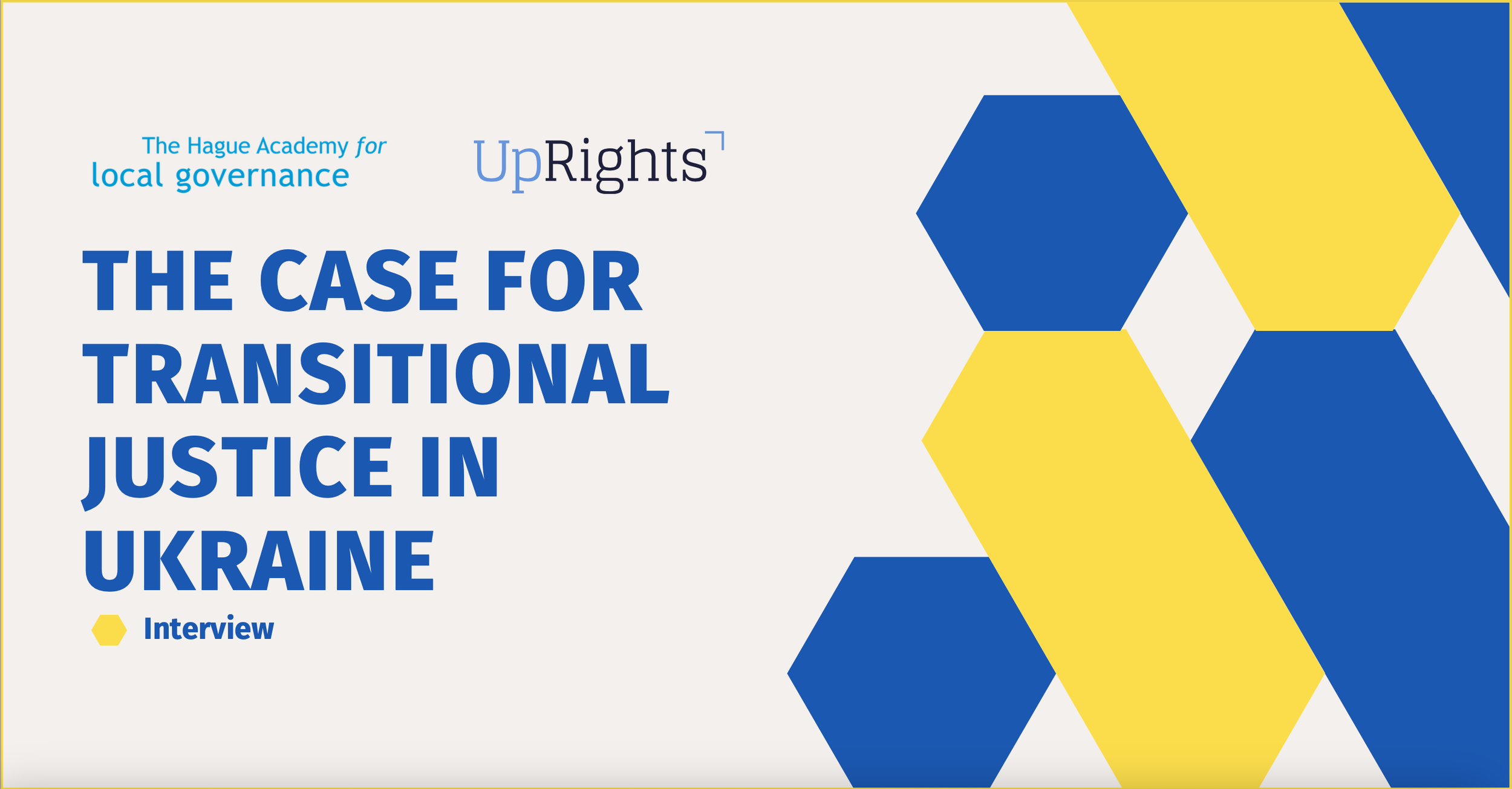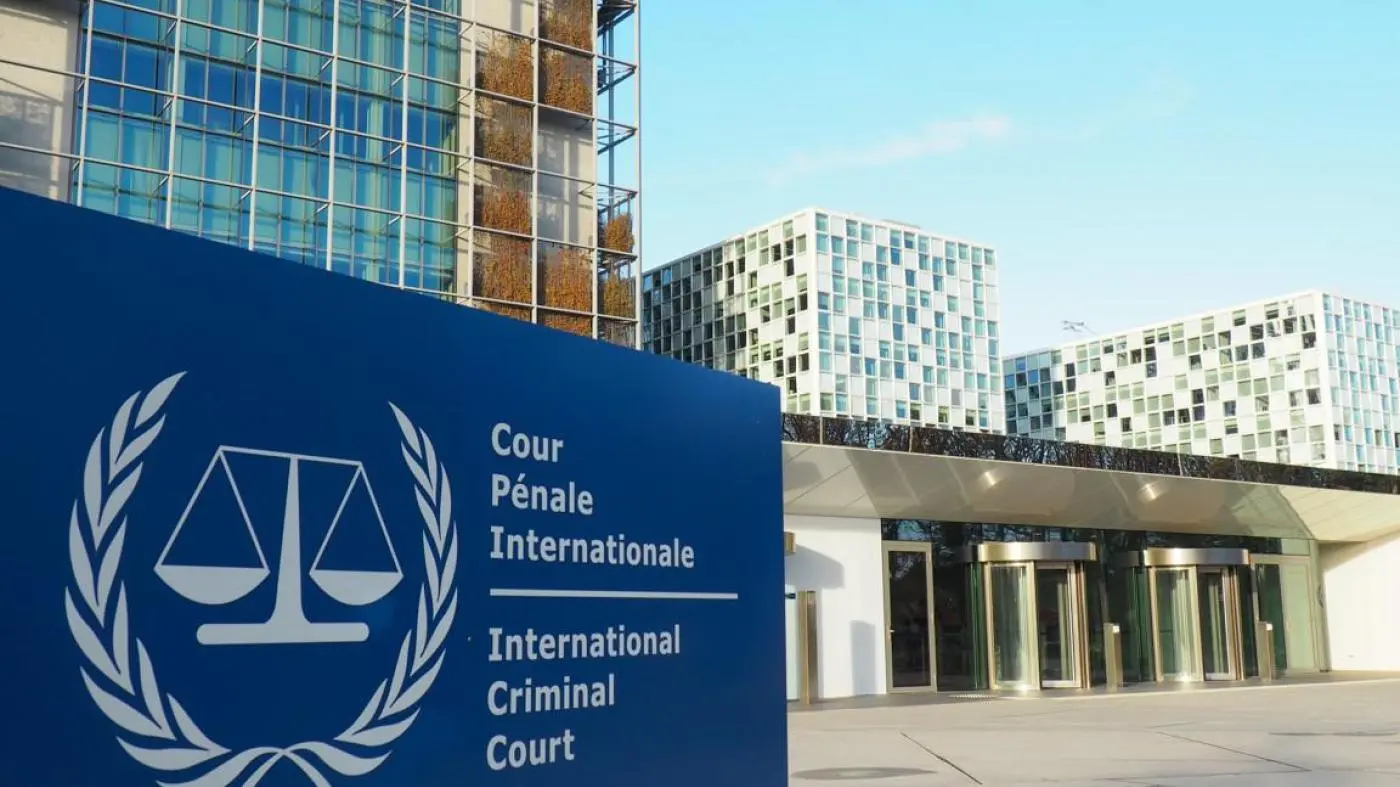Advancing Accountability: The Training of Trainers Workshop
10-06-2024
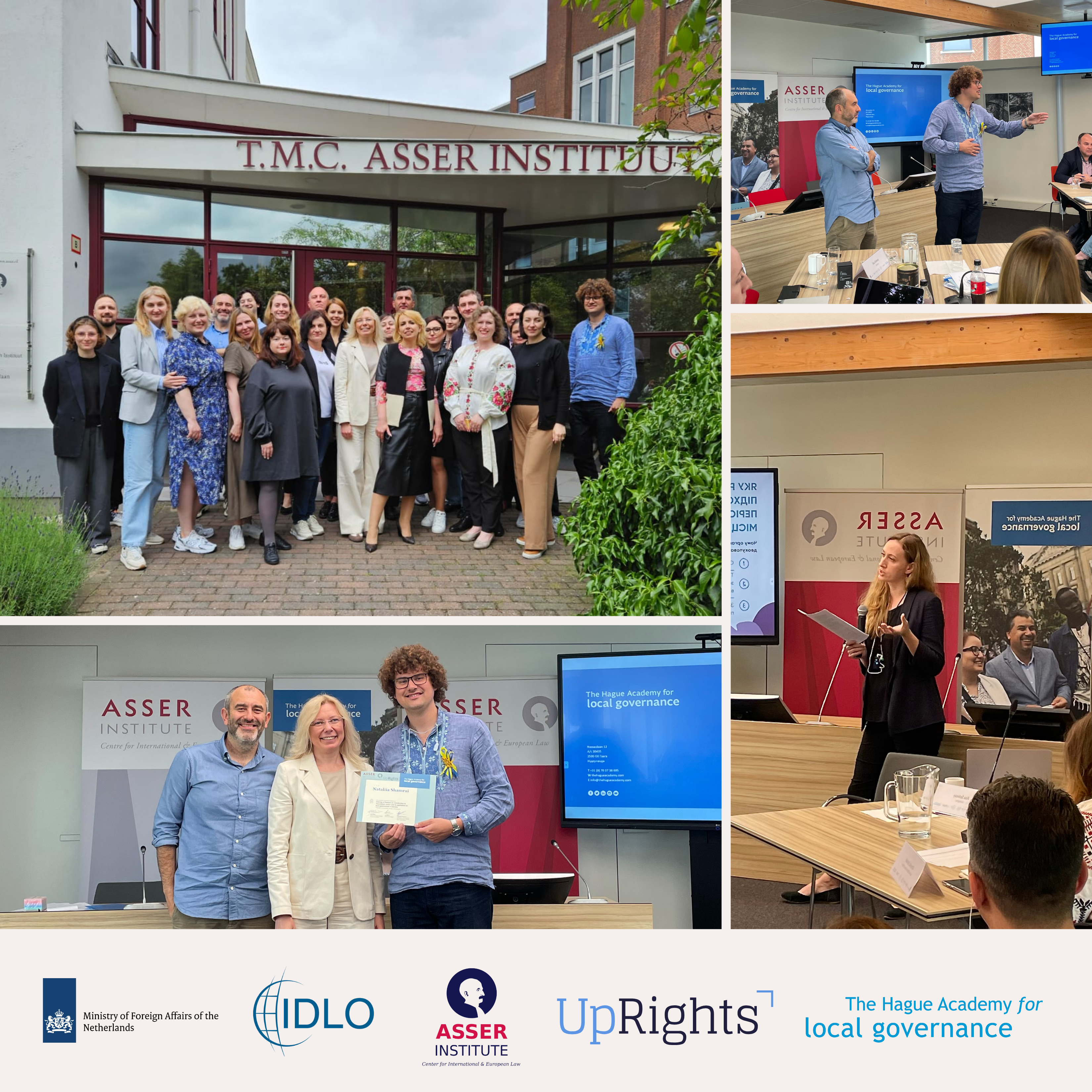
Last week marked a significant milestone in the ongoing effort to promote peace, ensure the rights of victims and advance accountability for international crimes committed in Ukraine. UpRights, in collaboration with the Asser Institute and The Hague Academy for Local Governance (THALG), concluded a successful Training of Trainers (ToT) workshop in The Hague. The workshop, that brought together 16 government officials from different regions of Ukraine, represented crucial step in developing and implementing specialized training modules on transitional justice (TJ) in the country, aiming to support comprehensive accountability and justice processes across the landscape of Ukraine.
Long-term Goals and Objectives
Falling under the ‘Restoring Dignity and Justice in Ukraine’ programme funded by the Dutch Ministry of Foreign Affairs, it strives to strengthen expertise and contextualize mechanisms to pursue accountability for international crimes in Ukraine. By assisting government officials and increasing the capacity of national and local institutions, the project aims to incorporate transitional justice practices effectively in the framework of Ukrainian local governance.
Local Governance and Transitional Justice
Participants actively considered the importance and role of transitional justice in local governance. They discussed challenges experienced by local communities and the importance of cross-sectoral cooperation to address the multifaceted complications of the full-scale invasion. In a context in which war risks creating distance between the administration and its people, the participants understood transitional justice mechanisms as avenues through which to convey to the citizens that Ukraine is not leaving them.
“People at the local level experience problems that cannot be understood by other local people and governance. That is why the local level can see the problem much clearer than the national level and therefore act quicker and better,” emphasized one participant, underscoring the unique position of local authorities to address immediate and concrete challenges faced by communities affected by conflict.
Developing a Contextual Approach
A significant takeaway from the workshop was the necessity of developing a transitional justice approach tailored to Ukraine’s unique context. “It is very important not to use templates to answer the question; there is a need to find individual and context-specific ways to deal with the past,” one of the guest experts advised. This sentiment was echoed throughout the sessions, emphasizing the concept of transitional justice in Ukraine needs to be built on the country’s history, traditions, challenges, and needs. “The answers need to be contextual,” reiterated UpRights’ Asa Solway, while a truth commission might be an effective approach in certain contexts, Ukraine may require a different method for truth-seeking that resonates with its specific circumstances.
The Role of Transitional Justice During Conflict
Breaking down the misconception that transitional justice can only be implemented after a conflict ends, the lively discussions amongst participants underscored how much of what can be done post-conflict is determined by actions taken during the conflict. Documentation during conflict, for instance, sets the groundwork for effective truth-seeking and memorialization efforts later, while engaging with civil society, victim groups, and the broader population even during ongoing conflict can lay the foundation for future reconciliation and justice processes.
Moving Forward
Yet, as underlined by UpRights’ Asa Solway and Ciara Laverty at the opening of the ToT, the completion of the training and its workshops represented only the beginning of a journey. Indeed, the trainers, having exchanged with peers and colleagues on the mechanisms that constitute transitional justice processes, set out to deliver the online training modules to other national participants.
As Ukraine navigates its path towards justice and accountability, the collaborative efforts of UpRights, the Asser Institute, The Hague Academy for Local Governance, and Ukrainian government officials will be pivotal. By fostering a deep understanding of transitional justice and its practical applications, this initiative aimed to support Ukraine in addressing the reality and aftermath of conflict and building a just and resilient society.
Through continued collaboration and tailored approaches, we can hope to see meaningful progress in the pursuit of justice and reconciliation for the people of Ukraine.
The Training at a Glance
This project is part of the ‘Restoring Dignity and Justice in Ukraine’ programme, focusing on advancing accountability for international crimes committed in Ukraine. The full programme is funded by the Dutch Ministry of Foreign Affairs and is implemented by the International Development Law Organisation (IDLO), in partnership with the T.M.C. Asser Instituut, the Center for International Legal Cooperation (CILC), and the Netherlands Helsinki Committee (NHC). The project aims at institutional strengthening and capacity development needs of various parties in Ukraine dealing with international crimes: prosecutors, police, judges, as well as journalists and civil society organizations. We believe that with the support of the international community, Ukraine can advance accountability for these crimes.
Let’s meet.
UpRights is based in The Hague, Netherlands
Info@uprights.org
Phone: +31 707013213


